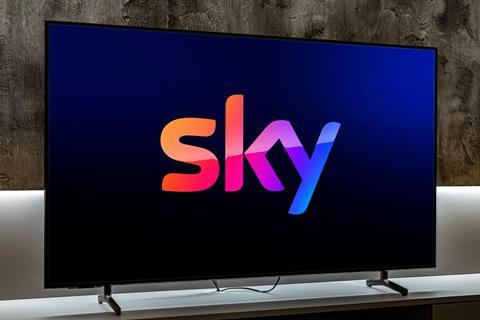An eight-year dispute over the intellectual property in the word 'Sky' has culminated in a landmark ruling from the Supreme Court - despite a request by both parties at a late stage not to proceed.
In SkyKick UK Ltd and anor v Sky Ltd and ors, five Supreme Court justices led by Lord Kitchin found that broadcaster Sky acted in bad faith when it applied for trade marks in categories of goods and services which it could never have intended to put on the market. The ruling overturns a Court of Appeal judgment in favour of Sky in a dispute with SkyKick, a provider of cloud computer services. The CoA's ruling followed four High Court judgments and a reference to the Court of Justice of the EU.

In its ruling today, the Supreme Court finds that the High Court was entitled to find that the Sky marks were applied for in bad faith to the extent that it did, and the Court of Appeal was wrong to reverse that finding. The procedure adopted in the High Court had not been unfair. The Court of Appeal was, however, right to find that, on the basis of the narrowed specifications of goods and services, infringement by Cloud Migration had not been established.
The judgment also confirms that, despite withdrawal from the EU, the UK court retains its jurisdiction as an EU trade mark court and can continue to determine the validity or invalidity of an EU trade mark including outside the UK.
It reveals that, as the judgment was being finalised, SkyKick, supported by Sky, applied for permission to withdraw its appeal following a settlement. However after inviting comments from the comptroller general of patents, Lord Kitchin found 'compelling reasons to refuse'. These were that the application was made at a late stage, that the judgment involved issues of general public importance and that the UK Intellectual Property Office considered it desirable for the judgment to proceed.
IP experts said the ruling would force companies to be more cautious in registering over-broad trade marks.
Charlotte Duly, head of brand protection at Charles Russell Speechlys, said: 'The fact that SkyKick have been successful in part could mean that holders of broad specifications will need to consider if they have been a little too broad, but the real issue here is defining what that means in practice. This could open a can of worms when it comes to the trade mark registers. The Supreme Court decision means it is possible to infer bad faith where an applicant has included broad goods and services rather than relevant sub-categories. However, it’s worth noting in the present case that Sky had not only applied for broad specifications but were basing infringement proceedings upon goods and services that Sky were unlikely to ever offer.'
Peter Vaughan, trade mark attorney and associate professor at Nottingham Law School said the judgment 'Likely brings to a dramatic halt the common practice of a broad brush approach to trade mark coverage. This allowed use of a trade mark as a “legal weapon against third parties”. This seemingly is now over.'
This article is now closed for comment.






























2 Readers' comments